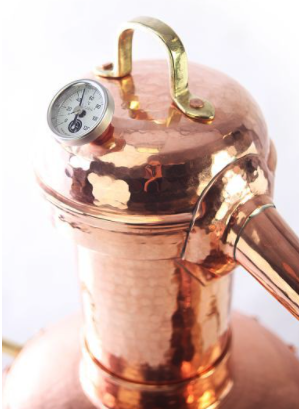Beschreibung
who should attend?
The introduction to distilling is a one-day course that provides a practical introduction to the principles of distilling. During the day, we will also be focusing on the process of aromatising spirits and the different methods available and how to apply them in practice. The main categories of botanicals used in the production of Gin and the differences in some of the ingredients according to where it has been grown or processed.
This course suitable for all who wish to gain a practical understanding of the distillation process and how spirits are made.
how will you benefit?
This course is ideal for all who are either interested in the production of spirits, or are employed in the bar, restaurant, hotel trade and for all who are employed in a commercial aspect for a merchant or a company importing spirits.
It will also be a viable introduction to the spirits industry for all who are interested in pursuing a career in the production of spirits.
Outline programme
- an introduction to the distillation principles
- temperature control in distillation and why is it important
- legal aspects for distilling in Switzerland
- base materials used to produce the base alcohol
- flavourings and how to add them
- health and safety with regard to the production and consumption of alcohol
Practical session – during the course of the day, you will learn about the main differences of distilling with a potstill and a column still as well as their respective advantages and disadvantages.
We also focus on the main “botanical” categories used to aromatise Gin and the process of formulating a “recipe” for aromatising a neutral base spirit.
This qualification includes a formative assessment where candidates must:
Successfully complete:
- a multiple choice task of 30 questions
Included in the course price are: – the study material as well as the raw materials to be used in the practical approach to the course
Required prior learning for the course: – no prior knowledge is required, however, an advantage to have followed and successfully passed the WSET® Level 2 Award in Spirits qualification
(If you are not sure, contact us, so that we can help you choose the course level according to your needs and objectives)
Guided learning hours: – it is recommended that a candidate should allocate 1 hour of study in class. The course is designed so that no study time outside the class time is required.
Learning outcomes: – at the end of this course, the candidate should be able to:
- show a general understanding of the principles of distillation
- show an understanding of the distillation process
- familiarity with the base ingredients used to produce alcohol which will then be concentrated to produce a spirit
- show a familiarity with the legal aspects of the production of spirits in Switzerland
- understand the importance of health and safety with regard to the consumption of spirits
Progression routes – upon successful completion of the “Introduction to Distilling in Practice” course, the candidate may progress to the following qualifications:
Craft Distilling in Practice – advanced course: The course builds on the knowledge gained in the “Introduction to Distilling in Practice” course. The course will examine the importance of choice in the equipment for distilling, as well as the product or products you intend to produce. The capacity for production and the costs involved, the choice and limitations depending on the product or products you wish to produce.
We will also be looking in practice, at the methods of producing the base alcohol which can or will be altered either through the distillation process itself or through ageing.
Level 2 Award in Spirits: – for individuals wishing to develop their expertise in spirits and liqueurs, this qualification provides comprehensive training. You will learn about the production methods and characteristics of the main spirits categories, while also exploring key brands and the use of spirits in cocktails.
Level 3 – WSET® Award in Spirits: – for individuals seeking to delve deeper into the world of spirits, this qualification provides detailed understanding of the factors that affect style, quality and price. You will learn how to assess spirits accurately and use your understanding to make authoritative recommendations.


